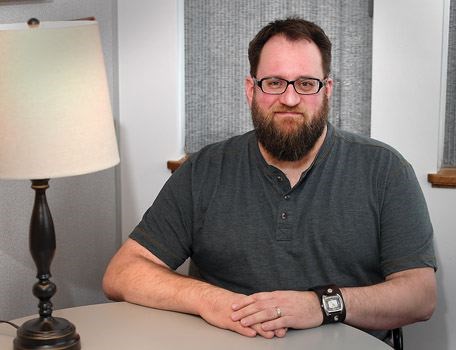A Prince George teacher has won the Governor General's History Award.
Glen Thielmann splits his time between Social Studies classes at D.P. Todd Secondary School and professional development duties with the Prince George & District Teachers' Association. A program he did with his students last year caught the attention of the nation.
The program was called Skookum Stories and was aimed at his Grade 9 Social Studies class.
"Students set out to find out more about their cultural heritage," he explained.
"Students gather evidence and conduct research about either their family's roots or their culture, with special attention to stories that have a connection to history, place, and ideas. Students for whom family is a real challenge are often led towards local history and community research, or broader sources that deal more with culture than family. Along the way, students design inquiry questions to help guide their work, and organize their evidence and response to their questions."
It was a project that facilitated deep examination of families or the ideas of families. Built into the planning was the realization that not all students are proud of their heritage, or in touch with their family members. It recognized that aboriginal students had a different approach to personal history than mainstream students do, and the same could be said for children in ministry care, adopted kids, students with estranged or disrupted families, students with close ties to immigration experiences, and so on. Those circumstances did not have to be roadblocks to examining one's roots, the project acknowledged, and even the most stable and trackable of family stories could benefit from some counterintuitive questioning.
Once the students completed and presented their work, the word got out about the personal impact it had on the kids.
He was called by a national history organization and asked to apply for the award, but he admitted that he doubted its chances. He wasn't sure such a classroom-based program would resonate with judges but on the contrary, the effectiveness of the personal inquiry project rang through in the support material like student references.
The leadership qualities exemplified by Thielmann go beyond a single project. He is a prolific communicator, especially about his professional subject matter, and the main tool of modern communication is the internet. He is the presenter of online spaces called Web River and Blog Cabin, for example, where his teaching materials get a worldwide audience.
He gets significant feedback, he said, from teachers elsewhere who talk to him about pedagogy or use his offered resources.
"I actually found out I'd gotten the Governor General's Award the exact same day the book came out, so that was a really good day," he said, referring to a Grade 9 resource text he and a collection of teachers collaborated to write.
"The other teachers were Rob Lewis, Joe Pereira, J.P. Martin, Vince Truant, and Jennifer Pighin from Prince George, Paula Waatainen from Nanaimo, Janet Ruest from Chemainus, and Shannon Leggett from Vancouver," he said in an online briefing note.
"We each wrote some of the topics or case studies in the Sourcebook, and I had the fun job of editing, writing the introduction, and other tasks along the way. It was an enjoyable learning curve on curriculum design and publishing a book, and a good experience working with the folks from (publisher) Pearson Canada."
As with his Skookum Stories program, the book's underlying theme is asking counterbalance questions to get closer to the truth of a topic, ways of switching perspectives to get a clearer picture of evidence, and avoidance of taking single streams of information as the only view of what happened in the past.
"This Thinking It Through Sourcebook will help students develop their critical thinking skills as they explore selected topics from the revised B.C. Social Studies 9 Curriculum," he said.
When you have a teaching mission like that, a pathway to pave the road of true knowledge instead of mere regurgitation of singular factoids, you become the kind of instructor who strives to give extra meaning to the concepts of history and heritage and human geography. That's one of the reasons he posts so much of his material online.
"I understand that some teachers feel they shouldn't do that unless it's perfect, and I'll put it up online even if it's not so polished, but at least it's out there if someone wants to use it, or makes people think of something they can use for themselves. I'm not telling people that my way is the best way, I'm just letting people in on what I'm doing as I go along, so we can all have that conversation and become better at our jobs by sharing our practices," he said.
Which is why he is pleased to spend half his day working with his colleagues to all become better teachers together, instead of going into administrative professions that, at this point in his career, are options for him. But he fears it would take him away from the aspects of the profession he loves most.
He figures he's got about 12 years of teaching left "and I love it, I enjoy teaching, I have no plans on leaving the K-12 system, but it would be fun to write some more, on social studies in particular."



